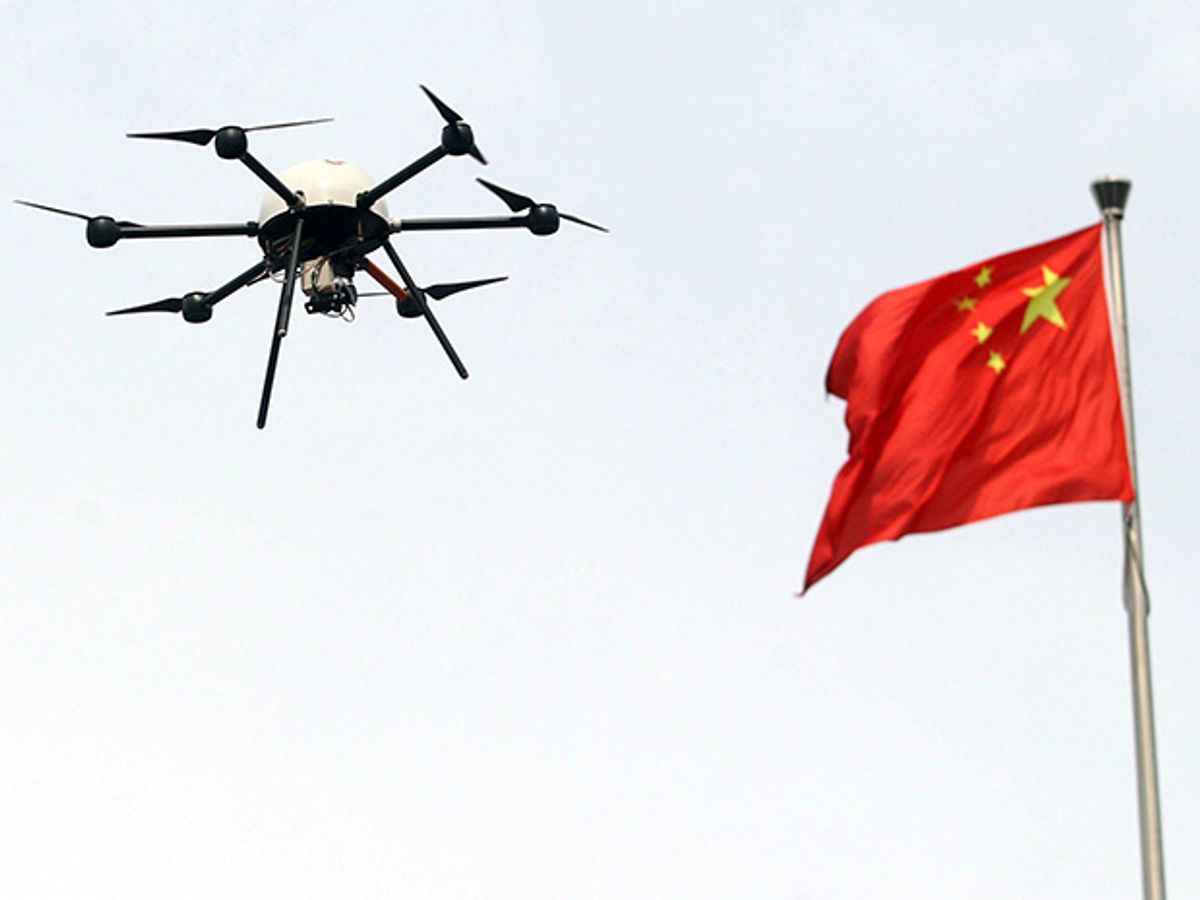China has begun putting new limits on the overseas sales of its most powerful supercomputers and drones. The move to limit some of the more advanced Chinese technologies echoes U.S. restrictions on similar technology exports.
Chinese companies seeking to export certain advanced supercomputers or drones will need to apply for export licenses, according to a 31 July announcement by China’s Ministry of Commerce and the General Administration of Customs. For supercomputers, that means anything more powerful than 8 teraflops (8 trillion floating-point operations per second), The Wall Street Journal reports. China currently has the world’s most powerful supercomputer, called Tianhe-2, at 33 petaflops (33 quadrillion floating-point operations per second.)
The new Chinese rules likely represent an effort to play up China’s technology strengths, said Andrei Chang, the Hong Kong-based editor of Kanwa Defense, an online publication about military affairs, in a Wall Street Journal interview. But they may also represent a reaction to the U.S. government blacklisting several Chinese supercomputing centers associated with Tianhe-2 because of concerns about their involvement in nuclear weapons development.
Both China and the U.S. are leaders in building ever-faster supercomputers. But the U.S. currently lags behind China and Japan in terms of plans to build the first exascale supercomputers. The two Asian nations hope to get there by 2020. On 29 July, President Obama signed an executive order focused on high-performance computing that included the goal of speeding up delivery of the first U.S. exascale supercomputer, which experts don’t expect until 2023.
The new Chinese export license restrictions also cover homegrown drones that can fly for more than an hour, along with drones that can stabilize themselves in the midst of strong winds and fly for more than half an hour. That probably won’t affect the business of the Chinese company DJI, which produces the popular Phantom line of commercial drones and currently ranks as the world’s largest commercial drone manufacturer. But it could potentially limit future exports as off-the-shelf drones become more powerful.
Jeremy Hsu has been working as a science and technology journalist in New York City since 2008. He has written on subjects as diverse as supercomputing and wearable electronics for IEEE Spectrum. When he’s not trying to wrap his head around the latest quantum computing news for Spectrum, he also contributes to a variety of publications such as Scientific American, Discover, Popular Science, and others. He is a graduate of New York University’s Science, Health & Environmental Reporting Program.



